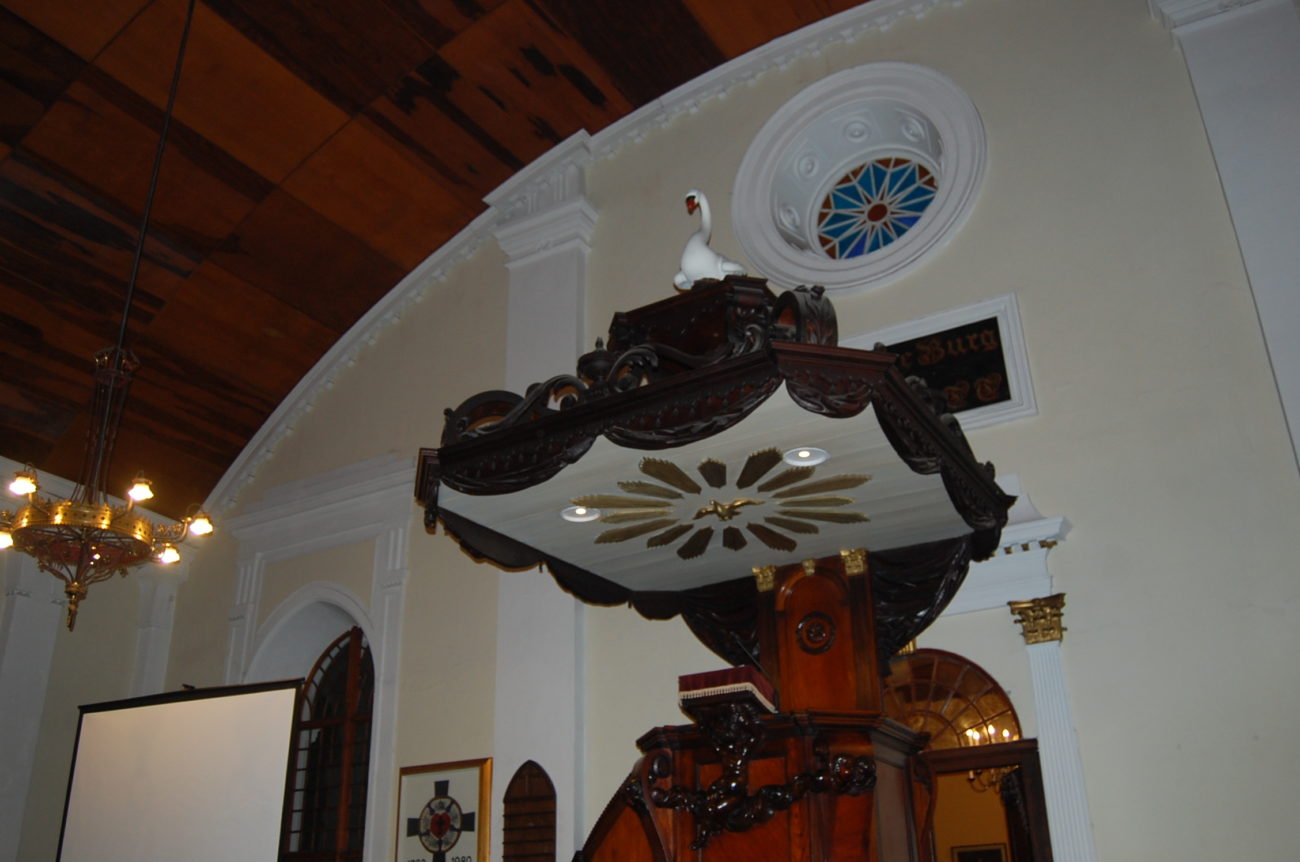
Co-missioners,
Atop the sounding board of the imposing pulpit in Cape Town’s Strand Street Lutheran Church—the oldest church building in South Africa—there sits a swan; or to be more accurate, the carved and painted figure thereof. From the floor of the nave it appears like a white dot incongruously marring the rich dark wood the pulpit is made of. I saw it in 2013 when I was invited to speak and preach at a synod of the Evangelical Lutheran Church of South Africa (Cape). Pr. Felix Meylahn, a leading theologian of the Cape Church and a standout presenter at our 2012 Crossings conference, arranged that visit. When I asked him what the goose was doing on top of the pulpit, he corrected me. “A swan,” he said. Then he pointed to the bronze lectern. There too a swan, this one cast in metal.
And behind the birds a pair of stories, one of famous last words and the other of secret signals. The famous last words came from Jan Hus, the Bohemian reformer who was burned at the stake in 1415. “Hus” is Bohemian for goose. Thus his declaration as the executioner applied torch to tinder: “Today you cook a goose. In a hundred years God will raise up a swan.” Fast forward to the late 1700s when the Strand Street church was being built in defiance of a decree by the Dutch East India Company that only Reformed churches were permitted in territory it claimed to control. So the builders got crafty. They designed the chancel in classic Reformed style with the pulpit dominating in the middle and a wee little communion table in front of it. Then they snuck in the birds as a sign to the Lutherans who would face this pulpit that they were in the right place after all. No Calvinist confounding of Law and Gospel in this church. Here the two would be rightly divided as the swan of 1517 insisted that they be.
All this came to mind a few weeks ago when I realized that we were coming up on the tenth anniversary of Ed Schroeder’s final post as originator, author, and editor of Thursday Theology. It went out on November 10, 2011, ten years back from yesterday. It seemed fitting to mark the occasion by sending it again. Ed called it his swan song. Indeed it is, though not in the sense of being the last thing he wrote—it was not. But as you’ll see, it turns out chiefly to compile snatches of the song that Luther sang on the topic of faith, and specifically of faith in the promise of Christ. “All along,” says Ed, “the main thing I’ve been pushing too.” Push he did, and ever so well for ever so long
As for now, God keep the swan song going! Be it your song as well, we pray.
Peace and Joy,
The Crossings Community
The End of the Line: It’s All About Faith and the Promise
by Edward H. Schroeder
Colleagues,
Today is Martin Luther’s 528th birthday. Last Sunday was my 81st. Eighty-one. That’s three times three times three times three. The trinitarian number to the fourth power, the number of the New Testament gospels. Seven hundred is one hundred times the Sabbath number. So it’s in the numbers. A fitting time to bring Thursday Theology over my name to Sabbath closure. Thursday Theology #1 was posted 699 Thursdays ago, on May 14, 1998. The Crossings board of directors has planned to keep it going. So stay tuned—I hear that something is already in the pipeline to come a week from today.
For today’s swan song a collection of Luther quotes—it is, after all, HIS birthday—all on the topic of faith. If there has been a golden thread through these 700 posts it’s been that: the Christian faith and that faith’s object, Christ’s promise. Here are some short citations from Luther on the topic, translated from Kurt Aland’s 1956 Lutherlexikon, a book published while I was doing my doctorate in Hamburg, Germany. Aland apparently read the entire Weimar Edition of Luther’s Works—some 70 quarto (big) volumes at that time, I think—and file-carded (no computers back then) Luther quotes on key theological words—eight hundred such terms—from “Abendmahl” (Lord’s Supper) to “Zweifel” (doubt). More likely, as a German university professor, Aland had his young academic apprentices do all the hard work and he then published the book. The end product is 472 pages. As usual, the translation was vetted (and improved!) by Marie. After all, for one of the grad school years in Germany she had the scholarship. For the second year she had the job as translator at Shell Oil Company that kept us going.
Remember that in German the word for faith and the word to believe/to trust, the noun and the verb, come from the same vocable stem. “Glaube” and “glauben.” So when the translation below shifts from verb to noun, different in English, it was the same sound when Luther said it. The English language is “blessed” by drawing half its vocables from Anglo-Saxon and the other half from Latin. So “faith” tracks back to the Latin “fides” while “believe” is an ancient kin to the word “glauben.”
Now, for the 700th time,
Peace and Joy!
Ed Schroeder
+ + +
- As much as you believe, so much is what you have.
- Everything depends on faith; the entire Christian life stands on that.
- Faith is so noble that it makes everything good that pertains to us humans.
- There is no work that can change us from what we are; faith alone can do it and does do it.
- Faith is so great a thing that we can never comprehend its might, its power, its strength, its impact . . . nothing is impossible for faith, nothing too difficult. Faith is an immense, marvelous work. Whoever believes is already a lord. And if he were immediately to die, he must yet live again. If he is poor, he must become rich again. If he is sick, he must become well again.
- This is faith’s peculiar nature, that it attends to and actually trusts something that is not yet present. For what is present one doesn’t need to believe; he feels it, he sees it. When a rich person surfeited with money and property believes that he will not die from starvation, that is not faith. However, when someone who has nothing in hand and nevertheless hangs onto, trusts, God’s word that God as father will sustain him as he continues to trust God and carry out his calling, that is genuine faith.
- This is our chief article . . . and our right, true Christian faith, and there is no other faith, namely, that Christ is true God and man. And such faith is the only one that saves. Whoever wants to have some other faith, let him go that way and see where he winds up. If reason will not believe that God could become human, then let it have its way. But we Christians believe that, for God’s Word says so, and for faith nothing is impossible. Reason may stumble and be vexed at this as it will. It must also be so that whoever would be rescued from the devil’s dominion, from sin and death, and be saved, must believe that Christ is true God, by whom the world was made; also true man, born of Mary. It is this faith alone, no other, whatever it may be called, that brings salvation.
- You should believe neither more nor less unless you have God’s word for it. For the essence and substance of faith is to rely on God’s word and build upon it. Where there is no word of God, there can and should be no faith.
- Faith itself is no good work, but is the master-teacher, the living nerve, of good works.
- You must pay attention and constantly proclaim that faith must not be entangled or bound by any ordinance tied to your work. Let this be your maxim and no other. With such an onslaught or effort [of doing good works] you will come to nothing, that you will see. And if you so persist in that and will not let yourself be turned, then know that I am not standing by your side. I want to have that clearly and plainly rejected.
- This is the fundamental shape of faith, that each one makes the resurrection of our Lord Jesus Christ his own. That means that it is not sufficient simply to believe that he is risen from the dead. For from that kind of faith flows neither peace nor joy, neither strength nor power. Rather this is the way you must believe: Christ is risen for YOUR sake, for YOUR benefit, and has been granted this honor not for himself. No, it is for YOU and all who believe in him, all whom he helps, and through his resurrection conquers sin, death and hell, and this victory is his gift for YOU.
- Faith can be called Christian faith only when you without wavering trust that Christ is not only for Peter and the saints, but also for you yourself, yes for you yourself more than all the others. Your salvation does not rest on your faith that Christ is a Christ for the good people, but that he is a Christ for you and belongs to you. Such faith makes Christ dear to you and taste sweet in your heart. Then follow love and good works without coercion. Should they not follow, then this faith is clearly not there. For where faith is, there must the Holy Spirit also be present to work that love and goodness within us.
- I have often spoken of two kinds of faith. With one you believe that Christ is such a person as the gospels describe him and as he is proclaimed. But you do not believe that it is for YOU that he is such a person, and you doubt whether you have these benefits from him now and in the future. Instead you think, “Yes, for the others, for Peter, Paul and the faithful saints, he is such a person. But who knows how he considers me and whether I should expect the same from him and rely on him as the saints do? Look, this sort of faith is nothing, receives and tastes Christ in no way at all, can experience no joy and love from him or to him. It is a faith ABOUT Christ and not faith IN, faith linked TO, Christ. Such faith is what the devil has, along with all wicked people.
- Where there is no faith, there is nothing but fear, anxiety, dread and sorrow when God comes to mind or is mentioned. Yes, hatred and enmity toward God is in such a heart. That then generates guilt in the conscience and the heart has no confidence that God is merciful and favorable toward it. For it knows that God is sin’s enemy and grimly punishes it.
- This is the unique nature of faith, that its strength is shown in the face of fear, of death, of sins and of everything which would drive a person to distraction and despair.
- All who believe see God’s face without wavering. That is, they comprehend that God is pure goodness and looks upon them with eyes of mercy.
- “Faith is the assurance of things hoped for, the conviction of things not seen” (Hebrews 11:1). That means faith is a confident assurance about those things which in this life we do not comprehend, but can only believe until the time that they will be made clear. Up until now, however, they are still not seen.
- Faith and Promise are corollaries of each other.
- Adam was a Christian already long before the birth of Christ. For he had the same faith in Christ that we have. For time makes no difference when it comes to faith. Faith is the same from the beginning of the world to its end . . . Therefore Adam received through his faith what I too have received. He never saw Christ with his own eyes and the same is true with us. But he had Christ in God’s word of promise and we too have him in God’s word of promise. The only difference is that in his case the promise was not yet fulfilled, but for us it has been.
- Our faith is still so weak and cold. Were it as confident and strong as it ought to be, we would not be able to live for all the joy.
- When we begin to believe, we begin at the same time to die to this world and to live to God in the life to come. Thus faith is a genuine death and resurrection, namely, a salvific baptism in which we go under and then come up again.
- Those who do not believe, but seek refuge in human help, will fall and succumb to death.
- As you believe, so you love—and vice versa.
- Feelings and faith are not on the same page.
- For one who wants to find salvation, he should think as though there were no one else on earth but him, and that all God’s comfort and promises throughout the entire holy scriptures are meant just for him.
- Faith is not a simple matter, but a highly remarkable thing, for which it would take a person a hundred thousand years to learn it—if only he could live so long.
- Faith cannot be grasped by any sort of human wisdom.
- Everyone believes at his own peril, and he must see for himself that he believe aright. For as little as someone else can travel to hell or heaven for me, so little can someone else also believe or not believe on my behalf. And as little as someone else can open or close heaven or hell, so little can he drive me to faith or unfaith.
- It may be that I have a very modest faith and others great faith, yet it is the ONE same faith whereby I cling to Christ. Just as someone can pour precious wine from the keg into a glass, and someone else into a large silver goblet, but the wine is the same.
- Faith looks steadily to Christ. It is focused nowhere else than on Christ alone, who has overcome sin and death and brought righteousness, salvation and life eternal.
- Faith itself transforms our thinking and leads to knowledge of the will of God.
- Believers must be completely certain that they have solid confidence in God’s word or in the promise of grace, that is, the forgiveness of sins for Christ’s sake.
- Do not be deceived, my dear people; If God is for us (of which I am confident) who can harm us? Faith is stronger than all our enemies. Our lamps can be extinguished by no one.
Thursday Theology: that the benefits of Christ be put to use
A publication of the Crossings Community

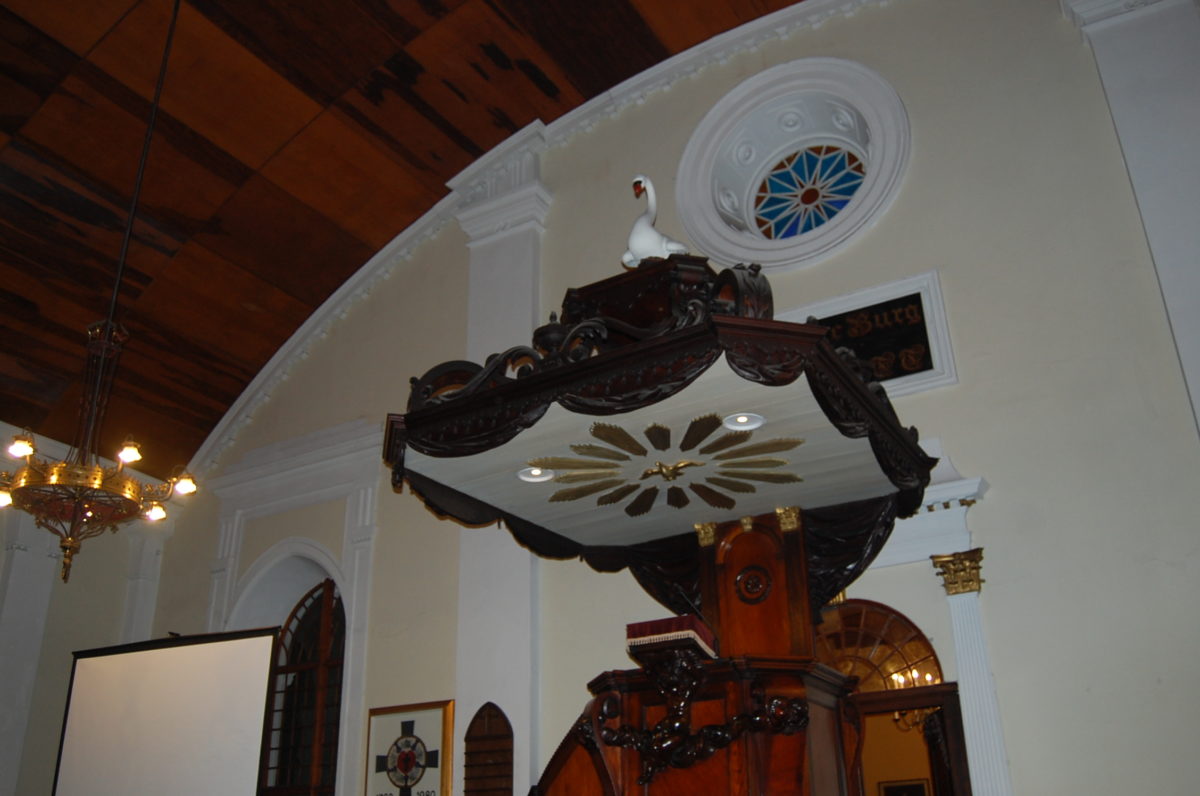


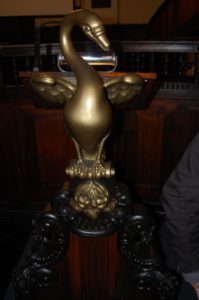

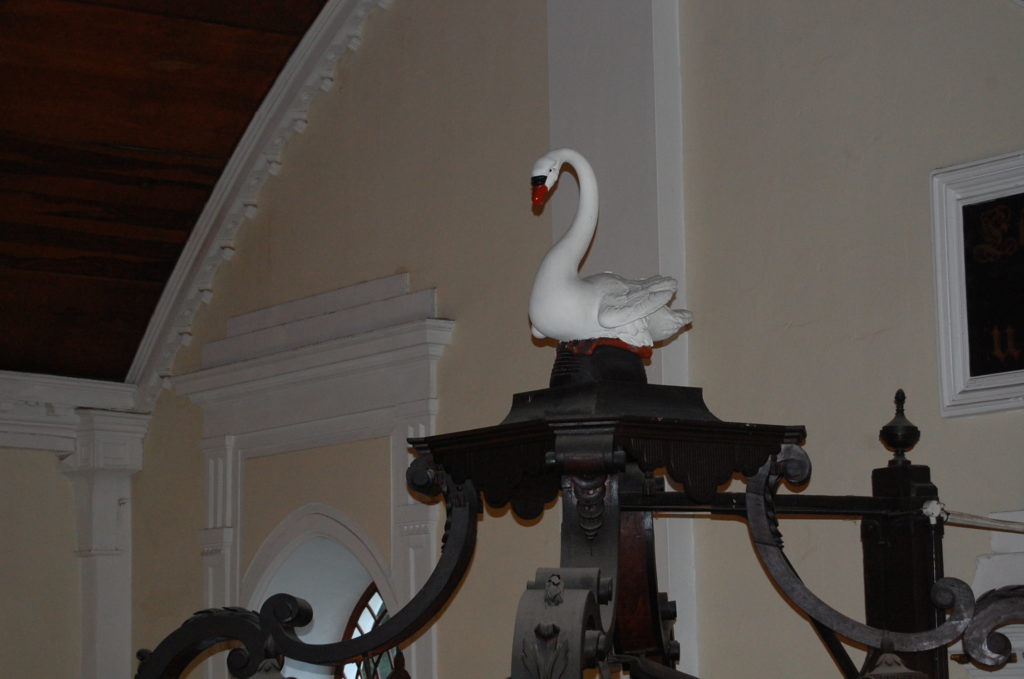
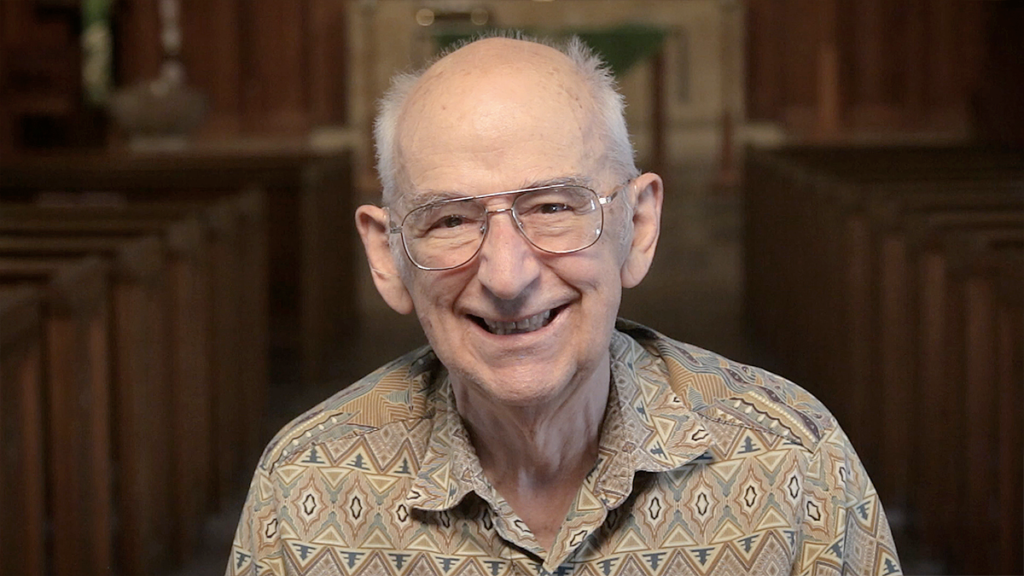
You must be logged in to post a comment.